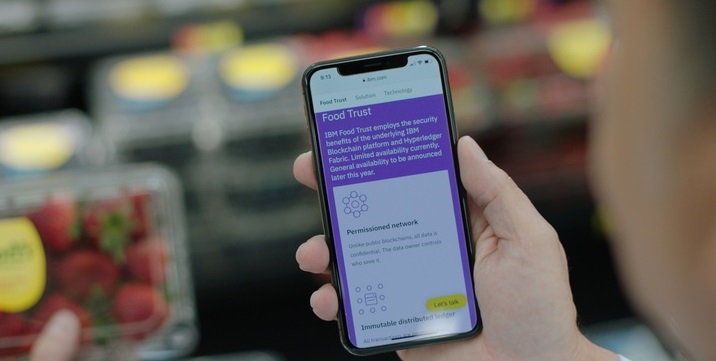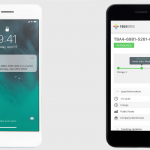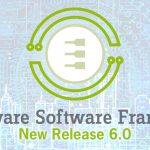Food/Beverage
Software applications that streamline and automate business processes throughout the supply chain to improve planning, optimise inventory levels, reduce costs, and respond quickly to changes in customer and supplier demand.IBM takes its food supply blockchain solution worldwide
Dive Brief: After 18 months of testing, IBM Food Trust, a blockchain-based food and supply chain solution, is “generally available,” the company said Monday. The announcement comes alongside news France-based grocer Carrefour would also join the solution. Carrefour will use the technology first on a few branded products, which reach 12,000 stores in 33 countries, before […]

Dive Brief:
- After 18 months of testing, IBM Food Trust, a blockchain-based food and supply chain solution, is “generally available,” the company said Monday.
- The announcement comes alongside news France-based grocer Carrefour would also join the solution. Carrefour will use the technology first on a few branded products, which reach 12,000 stores in 33 countries, before adopting it generally by 2022.
- As of Monday, any member of the food ecosystem could sign up to join the network. Suppliers can share data at no cost, but the solution’s software as a service (SaaS) modules must be purchased via subscription, according to the press release.
IBM’s announcement provides one of the first real glimpses for how the technology will be commercialized for supply chains.
For over a year now, IBM has been recruiting partners to help it test the technology in real-time. Walmart, Nestle, Dole, 3M and Centricity are among the large brands which have joined the effort.
In each case, the participants sought to determine how the technology could, if adopted, provide full end-to-end visibility for products. And, once it did, how to make the systems interoperable.
In the end, IBM built out a modular solution to meet companies’ different needs. It uses GS1 standards to communicate product data, and it is built on an open source platform to facilitate interoperability. The solution’s modules include:
- Trace: The module promises to help “members of a food ecosystem” see a product’s value chain journey in seconds. “A process that often takes weeks using other methods,” according to the press release.
- Certifications: The module digitizes certificates, “such as organic of fair trade,” boosting speed of certificate management by up to 30%, according to IBM.
- Data entry and access: A module for secure data management on the blockchain.
The modular format of the solution allows IBM to continue expanding its product as new needs arise. And, it allows the company to charge different prices depending on a company’s needs.
Of course, there is risk inherent to this model. Blockchain networks require participation from a wide array of actors in order to drive value. If a link in the chain does not participate, the goal of end-to-end traceability fails.
For that reason, early adopters are taking a product-specific approach. Walmart announced last month it would require its lettuce suppliers to join the network and Carrefour is starting implementation with its own branded products — rather than a more general slate.
IBM was careful not to make the cost prohibitive for the supply chain as a whole. Dedicated support, however, comes at a price. (IBM clarified in an email users public documentation and APIs are available to help upload the data at no cost.)
The monthly cost of IBM Food Trust varies by company size and need
| Small (<$50M) | Medium ($50M – $1B) | Large ($1B+) | |
|---|---|---|---|
| Base cost | $100 | $1,000 | $10,000 |
| Certifications | $200 | $600 | $4,200 |
| Standard Support | $3,500 | $3,500 | $3,500 |
| Total, with add-ons | $3,800 | $5,100 | $17,700 |
The solution was first conceived as a tool to address food safety and recall processes. However, “IBM Food Trust has evolved to focus on optimizing the food supply by improving shelf life and product freshness, reducing waste and making the supply chain more efficient, collaborative and transparent,” according to the spokesperson.
As it becomes generally available, and widely used thanks to its global supermarket partners (like Walmart and Carrefour), IBM is paving the way for blockchain to be implemented via a software as a service business model — at least for the food industry.










